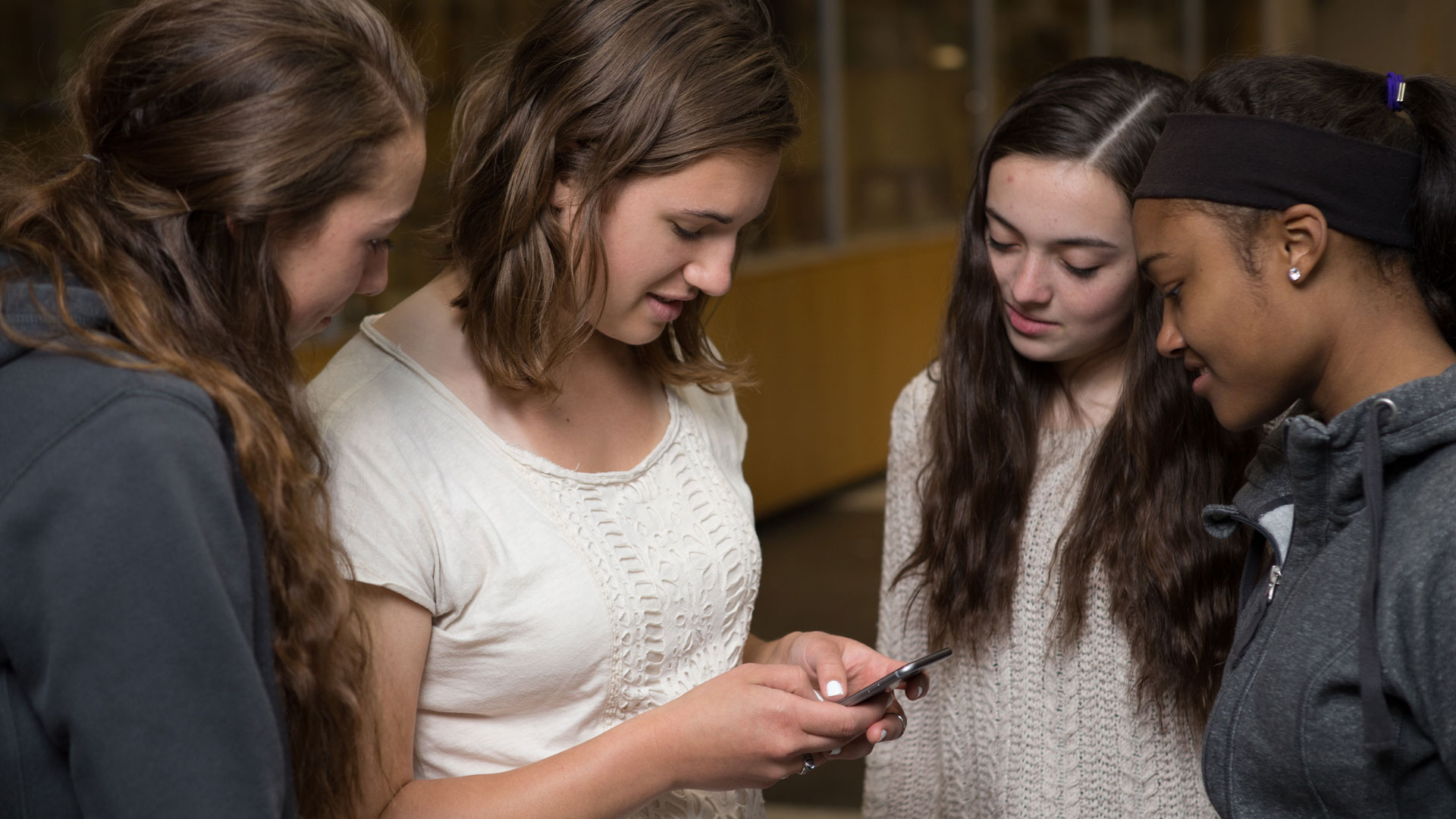If you have worked or volunteered in youth ministry long enough (…2 weeks?) you most likely have discovered that cellphones can be a distraction for your students within your ministry.
You may notice this while speaking in front of them, the subtle glow on the faces of the students in the back, the immediate glances down at their phones when any notification arrive, the leaning over and showing the phone to a neighbor, as smiles appear on both parties. We notice the students who are sitting together around a table but are all silent on their phones. Or we notice the students standing together, but some are disengaged with the conversation with the adult leader because of this little device.
The worst is when you, as a leader, is telling a story to a student and in mid-sentence, before the great crescendo of an ending you were planning, they grab the phone from their back pocket, and make eye contact with whatever app they chose.
My initial reaction is, “Man, I need to learn how to tell a more engaging story. They must not be interested in my friend’s uncle’s near death experience from skydiving. HE HAD TO PULL THE SPARE CHUTE! …and now he’s dead.”
That last part was more for dramatic effect, he’s still alive. Hence the “near death” portion of the story, but what do they know, they’re no longer listening.
Sharing stories and having conversations with each other is a significant part of how we build relationships. But we live in a day, that if we are no longer interested in listening, we don’t just put up “a wall” but a screen. Conversation over. Move along human.
I believe I am not the only one who has experienced this in youth ministry. The struggle to engage students and competing against their phones. The feeling of defeat.
Apparently there is a term for this. There is a term for everything. And I don’t mean floccinaucinihilipilification, even though it’s quite fitting.
I learned a new term a couple weeks ago, one we all can probably relate to. And even though it refers to romantic relationships in the study, I believe it can be transferred to all kinds of relationships.
The term is Phubbing from a study by Baylor University.
Short for “Phone Snubbing” and described as “the extent to which people use or are distracted by their cellphones while in the company of their relationship partners.”
This study found that “when someone perceived to be phubbed, this created conflict, led to lower levels of life satisfaction, and higher levels of depression.”
It states that 46% of people say they are in a relationship with someone who regularly phubbs. Baylor University is claiming this is killing relationships.
Cellphones are not going away any time soon. Neither are relationships. Cellphones are not bad either. They can definitely be leveraged to be used in your ministry in some great ways. We are not against that, as there are times when the cellphone has a purpose. (*cough* download the Claim Your Campus App *end cough*) But, they are changing how we relate to each other. They are becoming a center point of relationships. Is that a good thing?
How does using cellphones affect the relationships we build with students? Are we giving them tools to engage with adults and each other, to build meaningful relationships? Or are we allowing the tool they have to kill the meaningful relationships they have right in front of them?
I know it’s easy to walk into an unfamiliar place and not know anyone, and the immediate response is to pull out my phone, and not get to know anyone. It’s easier than coming up with questions to ask a stranger right? What if they don’t accept my line of questions and my innocent intrigue of the mundane? Who wants to feel rejected right? But, as an adult, I can still realize the importance of asking those questions to get to know someone. Do the majority of students?
Imagine if this artist came to your youth ministry to take photos like this, would you be satisfied with the results because you would see a normal functioning youth ministry where students are engaging with each other, or would you find out how ridiculous it appears when you look around with students staring at screens?
If a new student shows up to your youth ministry, and they see other students engaging in lively conversation, then are greeted and welcomed to join in on those conversations, how much more likely will that student feel they belong than if it was just natural and acceptable to leave them alone with their phones? You may never see that student step foot into the doors of your ministry again if that was the case. Who feels like they belong if no one appears to have any interest in talking to them?
It is meaningful relationships that we all seek. Let’s take on the challenge of not dismissing this phubbing behavior as normal and acceptable, but put the phones aside and engage in what resonates with students’ hearts. That is why we are in youth ministry.
Jayson Brewer
Director of Production Design
Never The Same
© 2015, Never The Same


